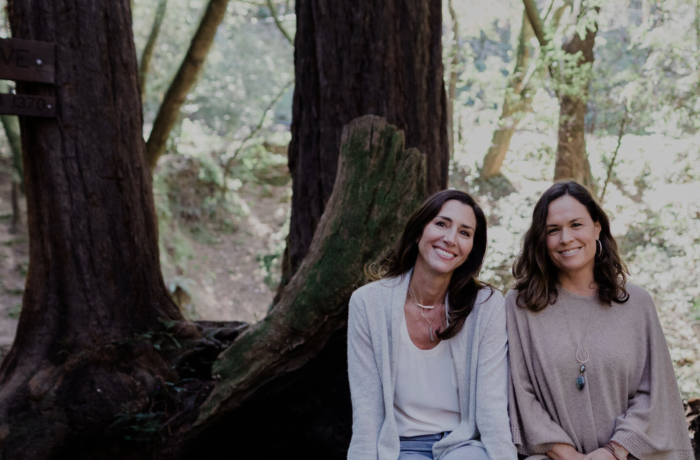Alexandra, a 40-year-old who has worked in marketing for a consumer goods company, recently did something to her resume she had never done before: she removed the year she graduated from college. Like many 40-something women applying for jobs, Alexandra worried about ageism and not being able to compete against younger candidates.
“For the first time, I was a little self-conscious about my age,” says the Cincinnati resident who is currently job searching since she was laid off about eight months ago. “I keep reading about job searching when you’re over forty and how hard it can be, so I wanted to downplay my age.”
Alexandra was also worried about “having enough runway”—meaning employers may look at her age and wonder how many working years she had left.
Apart from tweaking her resume, Alexandra also embraced a healthier lifestyle by eating better, cutting out caffeine, and exercising regularly.
“I don’t want to be perceived as tired or ragged when I’m interviewing for jobs,” she says.
But while Alexandra is turning to the gym and diet to help improve her appearance, other women are heading to the dermatologist for cosmetic procedures.
Dr. Daniel Ahoubim, a New York City dermatologist and the founder of Refined Aesthetics, says that many of his female clients between the ages of 30 and 50 are requesting Botox and fillers for work-related reasons.
“My clients don’t want a drastic change or a facelift,” he says. “The majority of them have a few wrinkles that are starting to show and want a subtle change. They tell me it enhances their ability to be more competitive at work and helps them feel more confident.”
Dr. Howard Sobel, a Manhattan dermatologist and founder of the DDF Skincare line, says that some of his most requested procedures include Botox to soften the frown lines, and fillers under the eyes and in the cheeks to give a natural, well-rested look.
“Looking great helps someone hunting for a new job feel positive and confident,” he says. “The competition for high-paying jobs is fierce. There are so many qualified candidates for jobs that ‘looking good’ gives someone the edge.”
But how much do looks really matter when it comes to landing a job?
Mark Stevens, the CEO of marketing/management firm MSCO, and author of Your Marketing Sucks, says that appearance is key when it comes to job hunting.
“Job hunting is a ruthless competition that is won by those who reject the myths and see the hard realities for what they are,” he says. “Invest in your appearance. If your hair is gray…color it.”
While some may not be as vocal as Stevens, it’s clear that appearance has an effect on perception.
RealSelf, a cosmetic surgery website, recently unveiled a survey asking participants to rate people’s characteristics (such as friendliness and motivation) based on before and after photos. Women who underwent rhinoplasty were seen as more competitive, motivated, and creative while women who had used the injectable Voluma were seen as being more trustworthy, competitive, creative, friendly, and motivated.
Interestingly, ageism in the workplace can be industry-specific. For example, in fields such as media or advertising, looks can play a bigger role than in a job where someone is behind the scenes, such as a lab researcher.
Megan Young has more than 18 years of HR experience at companies including IKEA and Comcast and currently works at large television media company.
“Doing HR for a media company is different than anywhere else,” she says. “I have to talk about who is attractive enough to be on television.”
Jennifer, a 25-year-old who works as a publicist for a cosmetics brand in New York, says she has been doing lip fillers for years to combat her “thin lips,” but is also considering Botox, partly because of pressure to look good in the beauty business.
“I have read countless articles about how important it is to begin anti-aging in your 20’s,” she says. “I feel by doing so I am taking the necessary steps to always remain a fresh face in an industry focused on how you look.”
But those in hiring positions say cosmetic procedures aren’t the only way to age-proof your job search. To stay competitive, says Kristin Scarth, a career services manager and certified professional resume writer at New York-based Employment BOOST, recommends removing graduation dates for high school and college.
“We also suggest adding a line to your professional or executive summary noting something like ‘more than ten years of experience with etc. etc.’,” she says. “It sets the tone that you have experience, but you’re not over-seasoned in the mind of the hiring manager.”
Then there are those who worry about looking under-seasoned.
“I am often considered to be quite a bit more junior than I actually am and I’ve had to argue my experience,” says Marie, a 40-year-old who works in pharmaceuticals in Boston. “So the idea of taking any measures beyond something that is washable to look younger/better has never really entered my consciousness. If I were in a field where appearance mattered more, I am certain that might be different.”
Which just goes to show that ageism, along with beauty, is often in the eye of the beholder—or the interviewer.





